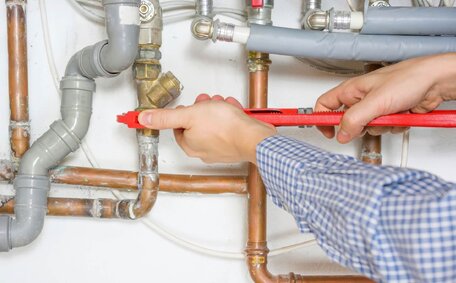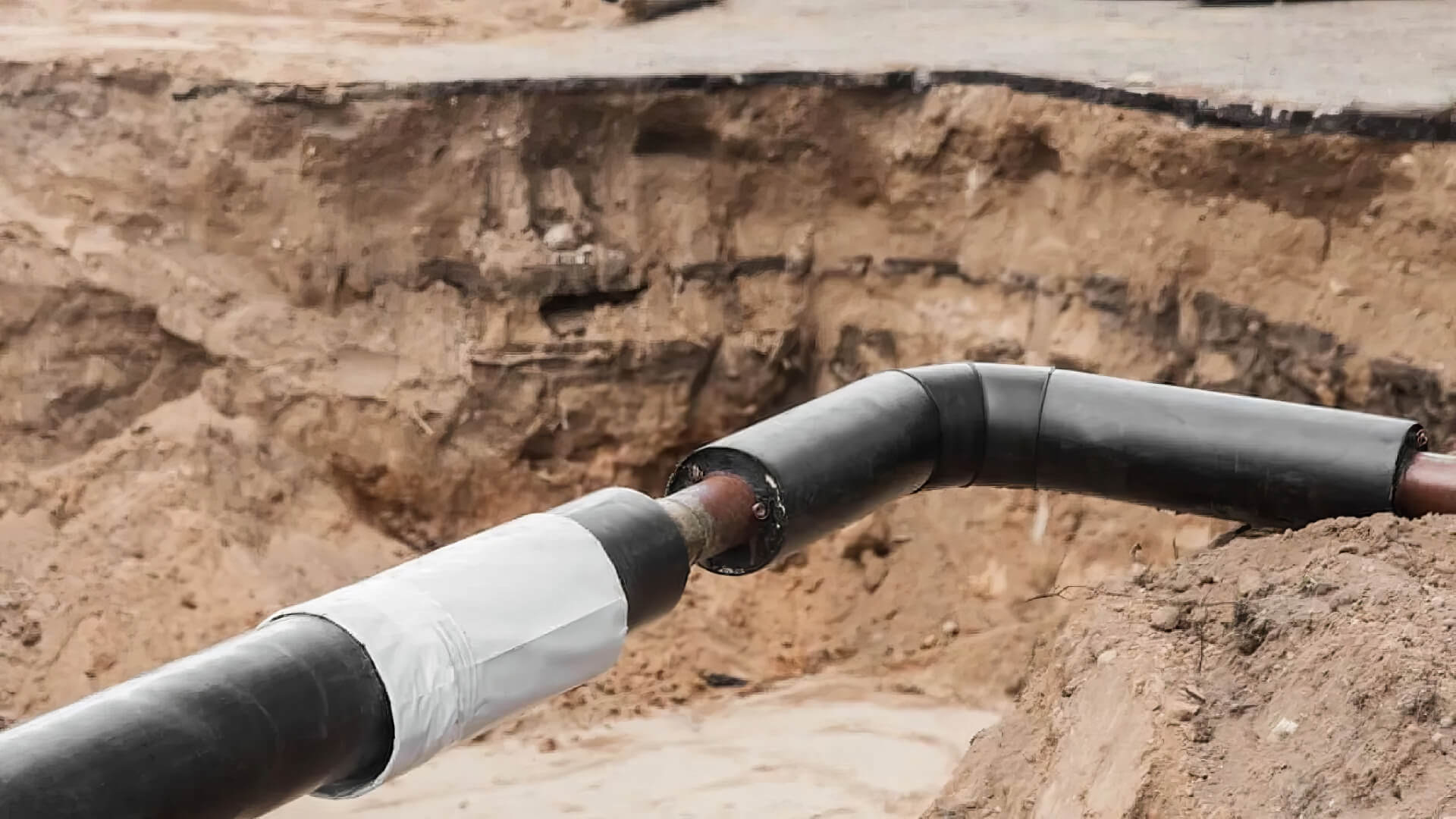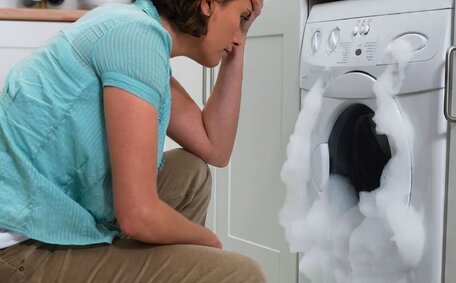
What’s involved in upgrading your gas meter?
Upgrading your gas meter is a simple process completed by qualified technicians. It involves disconnecting your gas supply for 15 minutes to swap the meter. Contact us today for a quote.
Read MoreHot water systems are indispensable in homes and businesses across Australia. These systems provide hot water for showers, laundry, dishwashing, and sanitation requirements. Yet, neglecting maintenance can lead to hot water system explosions, endangering safety.
Although uncommon, hot water systems can explode under certain conditions.
Explosions in electric hot water systems often result from excessive pressure and temperature within the tank. A malfunctioning pressure relief valve can fail to reduce this pressure, potentially causing the tank to rupture. Such a pressure buildup can lead to catastrophic outcomes, such as system explosions that cause significant damage, injuries, or even fatalities.
As plumbing experts specialised in hot water system installations and maintenance, we emphasise the importance of identifying and managing risk factors to prevent explosions. By proactively servicing and educating on preventive measures, our objective is to maintain the safety and comfort of on-demand hot water in your home.
Various pressure and temperature factors can contribute to potential hot water system disasters:
Malfunctioning TP Valves are a prevalent cause for concern. Designed as safety features, these valves are meant to open and release any excess pressure from within the tank. If the temperature pressure relief valves are compromised due to age, defects, or improper installation, pressure may continue to rise, creating a hazardous scenario.
A combination of high pressure and temperature could endanger your water heater, as it may exceed safety limits and risk an explosion. Thermostats connected to your hot water tank may fail to shut off the heating elements at the proper temperature.
Sediment buildup on heating elements can cause excessive heat, leading to concerns about your water heater’s safety. Similarly, a faulty thermostat that permits uncontrolled temperature rise could trigger an explosion.
Over time, corrosion and mineral deposits can accumulate inside the tank, leading to increased risk.
Improper installation, particularly misaligning the TP valve without the correct safety measures, can lead to malfunction or even explosion. Incorrectly fitted pressure relief valves, pipes, or other components can compromise the integrity and safety of your water heater, leading to the risk of an explosion. Lack of regular professional maintenance also heightens risks as problems go undetected.
Understanding the causes of system explosions enables homeowners to take preventive action by ensuring proper installation and maintenance of the TP valve, enhancing home safety. If in doubt, seek inspection and servicing from licensed professionals.
Sediment buildup inside your hot water tank over time can greatly increase the risk of dangerous overheating and explosions. Sediment refers to mineral deposits and rust particles that accumulate at the bottom of your water heater tank.
Statistics show that without regular maintenance, especially sediment management, as many as 75% of hot water systems five years and older are at risk of unexpected failure. As the sediment layer thickens, it causes a number of problems:
To prevent sediment buildup and maintain a clean water system, it is recommended to have your water heater professionally flushed annually. This drains out the loose sediment before it can cause serious issues. Flushing only takes about an hour and is a small price to pay for the added safety and longevity it provides your system.
During a flush, a technician will check the discharge pipe and inspect, and if necessary, replace the corroded anode rod. The anode rod attracts corrosion away from the tank itself. Replacing the anode rod every 5 years greatly reduces the risk of corrosion, thus minimizing the chances of leaks and system explosions.
Don’t ignore yearly flushing and anode rod maintenance if you aim to keep your water heater from malfunctions and ensure safe and efficient operation throughout its lifespan. Catching problems early not only prevents sediment buildup issues but also avoids far more expensive repairs down the track.
Gas leaks pose a serious danger and can potentially lead to fires or explosions if not addressed promptly. In gas heaters, neglected pilot lights or broken thermocouples, often due to faulty installation, can result in undetected gas escape over time.
Warning signs of a gas leak include the smell of rotten eggs or sulphur near your water heater. You may also hear a hissing noise if the leak is substantial. Should you suspect a leak, survey the area, exit promptly, and contact our emergency plumbing services.
Never attempt to find or repair a gas leak on your own. As a precaution, cut the gas supply and increase ventilation by opening windows. Ultimately, the safest approach is to leave gas lines in the hands of qualified professionals.
At Mortdale Plumbing, all of our plumbers are fully licenced and experienced with gas line repairs, installations, and maintenance.
If pressure builds up too high, the tank can experience immense strain on its metal walls and seams. The pressure relief valve, also designed for pressure release and to reduce pressure, is a safety mechanism intended to prevent conditions where a tank can explode.
A faulty TP valve that fails to open can cause pressure to dangerously accumulate with no release inside the tank. Excessive pressure can force the metal walls to expand beyond their limits, leading to a rupture and potential explosion. Proper installation and regular valve testing helps avoid this risk.
If you notice any of these signs, shut off the gas or power supply to your hot water system right away. Then call a professional plumber immediately to inspect your system and make any necessary repairs.
A leaking pressure relief valve on your hot water system is a serious issue that requires immediate attention. This valve is a critical safety component designed to release excess pressure from inside the tank before it reaches dangerous levels. A leaking pressure relief valve on your hot water system is a serious issue that requires immediate attention.
Left unaddressed, a leaking relief valve can eventually lead to a full-blown tank explosion. As pressure climbs inside the stressed metal tank, it will eventually rupture violently. In addition to this explosion risk, a leaking valve also causes water damage over time.
Conducting an annual check where you assess for signs that can indicate issues with your water heater’s pressure relief valve is critical. Water should flow out when opened, then stop when you release the lever. If water continues dripping, the valve needs replacement by a professional plumber.
Our team at Mortdale Plumbing can provide and fit a new pressure relief valve for your hot water system. We ensure that the pressure relief valve TP is accurately matched to your tank’s dimensions and pressure requirements. We also offer affordable yearly maintenance plans with included valve inspections for peace of mind.
Do not compromise your home’s safety and risk endangering your family by delaying the repair of a leaking pressure relief valve. Contact us today to schedule an inspection or replacement and ensure your hot water system remains in safe working order.
If you hear consistent popping or cracking noises coming from your hot water system, this is a telltale warning sign that pressure levels are dangerously high inside the tank. The popping occurs when pressure repeatedly forces the metal walls of the tank to expand slightly and then contract.
The metal and seams of the water heater tank can weaken under the prolonged strain of pressure and temperature changes. The popping noises indicate the tank is under immense strain and pressure continues building.
Unchecked, this could lead to a violent explosion in your water heater. Don’t ignore consistent popping from your water heater.
Begin by immediately shutting off gas or power to the unit, then call our team of hot water specialists. We can inspect for issues like a faulty pressure relief valve, corrosion, or sediment buildup overheating the unit. Where possible, we will release pressure safely and make repairs to restore normal operation.
In some cases where the tank is older or damage is too severe, full replacement may be required. Trust our licenced plumbers to accurately assess the cause and remedy it before disaster strikes. With over 25 years serving Mortdale, we have the experience to address issues in your pressure tank and prevent a dangerous hot water system explosion.
Detecting a rotten egg smell near your hot water system is a serious warning sign that requires immediate action. This odour is commonly caused by hydrogen sulphide gas, which results from bacterial growth in the heater tank or pipes. It can also indicate a dangerous gas leak.
When there is a noticeable rotten egg odour around your water heater, vacate the premises right away and call our emergency plumbers. Turn off the gas supply valve if safely able to do so, but do not operate any electronics or turn on ventilation fans which could spark an explosion.
Do not try to locate the source of the smell yourself.
Our technicians will inspect for bacterial contamination, corrosion, gas leaks, or other underlying issues causing the odour. We can do any necessary repairs and flush out the system to eliminate the rotten egg smell at its source.
Do not hesitate to enlist your local plumbing experts if you encounter this alarming odour, prioritising your system’s safety.
There are several key steps homeowners can take to help prevent dangerous hot water system explosions:
Mortdale Plumbing helps prevent disasters with cost-effective yearly maintenance plans, which include inspections and services tailored to reducing explosion risks. Investing in preventative care is far less costly than emergency repairs after a catastrophic tank failure. Contact us today to discuss protecting your hot water system and home.
While certain minor issues with hot water systems can be fixed through DIY methods, it’s important to know when to seek professional assistance. For annual maintenance like sediment flushing or pressure valve replacement to prevent water damage, trust our expert technicians here at Mortdale Plumbing.
If you notice any concerning symptoms like a leaking relief valve, consistent popping noises, a rotten egg odour, or rusty water, shut off the gas or power supply and call a licenced plumber right away. Avoid risks to your safety - contact our professional team by phone or email to arrange cost-effective inspections and maintenance.
Hot water systems provide an essential service in homes and businesses, but also require diligent maintenance and care. Through annual inspections, sediment flushing, pressure valve testing, and replacing worn components, potential risks can be mitigated. Being attuned to the warning signs of impending issues allows for early intervention before disaster strikes. Hot water systems provide an essential service in homes and businesses, but also require diligent maintenance and care. By taking proactive measures and recognising signs you should look out for, and utilising our decades of plumbing expertise when needed, you can feel confident in your hot water safety. Through annual inspections, sediment flushing, pressure valve testing, and replacing worn components, potential risks can be mitigated.
However, dealing with complex repairs or replacements that can cause water heater issues should always be handled by licenced professionals.
Upgrading your gas meter is a simple process completed by qualified technicians. It involves disconnecting your gas supply for 15 minutes to swap the meter. Contact us today for a quote.
Read MoreWe use only the most durable, long-lasting and eco-friendly pipe relining materials such as PVC and epoxy resin to repair pipes without excavation.
Read MoreChemical drain cleaners contain toxic chemicals like sulfuric acid and sodium hydroxide that can damage pipes, disrupt septic systems, and harm humans if inhaled or make contact with skin. Avoid chemical drain cleaners and call Mortdale Plumbing at [phone] for safe, eco-friendly drain cleaning.
Read MoreMortdale, 2223 NSW
We will call back as soon as possible.




